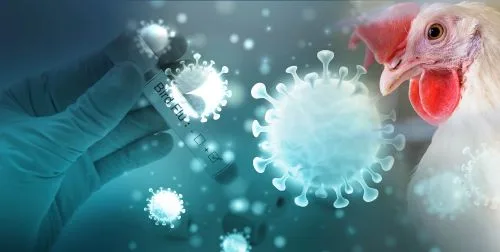As a senior security leader, you’re concerned about all the risks your enterprise faces, but how aware of biosecurity threats – especially those affecting humans – are you, right now?
Biosecurity is a broad term that encompasses infectious diseases, as well as biological risks from environmental, geopolitical and infrastructure events. And we know that biological threats are increasing in frequency and impact across the globe. Just this summer we’ve seen severe heat, unhealthy air from wildfire smoke, protests in Europe and the rise of deadly diseases such as cholera and dengue fever.

How ready are you to face new biosecurity threats? Here are 10 questions that can help you determine your level of preparedness. The more “yes” responses you can provide to the following questions, the more prepared your business will be for the next biosecurity event.
Question #1: Is your business operating under the presumption that more pandemics like the COVID-19 crisis are likely to arise in the not-too-distant future?
We’d all like the recent pandemic to be “one and done,” but experts tell us that we can expect another pandemic at least the size of the last one within a few years. In the meantime, we will confront other biosecurity risks that threaten lives and livelihoods.
Question #2: Has your business conducted a review of its response to the COVID-19 pandemic to ascertain lessons learned and prepare for future biosecurity threats?
Experience is often the best teacher, and most businesses can learn valuable lessons from their COVID-19 response. You may have a general sense of whether your response was successful or not. But without a thorough, data-driven analysis, you may remain unaware of specific opportunities for improvement.
Question #3: Has your business identified potential biosecurity hazards specific to your geographic footprint?
A pandemic is not the only biosecurity threat you face, and the larger your footprint is, the more challenging it is to identify threats. Differences in climate, geography, infrastructure, and available medical care can cause biosecurity threats to differ vastly from site to site. Consider the threats to each of your business sites, as well as threats during commuting, delivery or travel.
Question #4: Have you included biosecurity threats in your existing risk assessment to establish its threat level to your business?
Risk assessment can be a time-consuming and costly procedure, but it serves an important purpose: quantifying your level of risk so you can develop a robust response. Biosecurity threats should be a part of your assessment, just like cybersecurity.
Question #5: Does your enterprise already have an emergency operations plan that includes biosecurity?
After you assess the risks you face, your emergency operations plans should detail actions for prevention, preparedness, response and recovery for a variety of threats. Take time now to update your plans to include emerging biosecurity threats.
Question #6: Does your business have a detailed plan for communicating risks to employees, customers and the public?
When disaster strikes, communication is key. During a biosecurity threat event, you may need to quickly communicate about infectious disease exposure, building closures, evacuations, or many other biosecurity-related matters. Do you have a solid plan for reaching your entire team, both during business hours and outside of them? Do you have a plan for communicating with the public and media? Do you have backup communication plans if cell service is down?
Question #7: Has your business taken health and safety actions to mitigate biosecurity threats for employees and their families?
An ounce of prevention is worth a pound of cure – it’s a cliche that rings true when it comes to biosecurity management. Determine whether your business is taking all recommended proactive measures, such as:
- Incentivizing preventive care through health insurance provisions
- Conducting occupational health screening for illness
- Establishing a workplace Illness and Injury Prevention Program or equivalent
- Communicating safe work practices, such as hand washing, safe food handling and using sick leave to lessen workplace disease transmission
- Explore and implement policies to promote business continuity in face of biosecurity threats
Question #8: Does your business have access to supplies needed to mitigate biosecurity events and to respond to events that emerge?
A few leftover COVID-19 masks aren’t enough to constitute a robust supply stash. Keeping in mind that supply shortages often arise at the outset of a crisis, ensure your business is adequately stocked with:
- Personal protective equipment
- Ventilation and air filtration systems
- Disinfection equipment and supplies
- Back-up power sources for key facilities and workspaces
- Air and water filtration systems
Question #9: When planning work-related events, conferences and travel, does your event team work to mitigate and resolve possible biosecurity threats?
Biosecurity threats aren’t just contained to your permanent operation sites. Your business is also responsible to manage biosecurity threats during travel and off-site events. If you haven’t been accounting for these risks, you may have a blind spot to correct before it’s too late.
Question #10: Does your business have an internal or external system to provide analysis and guidance during current and future biosecurity events?
When a new biosecurity threat arises, members of your organization will likely have different opinions about how to proceed. Without an authoritative, data-driven system to provide direction, things can devolve quickly. Fortunately, you don’t have to manage the next crisis alone.
PHC Global delivers biosecurity intelligence options that meet you where you are – through an API that integrates with existing security management software, stand-alone SaaS platform and alerts, and expert consultations. PHC Pharos, a stand-alone SaaS platform, provides 24/7 online access to customized biosecurity intelligence, as well as critical alerts that inform your enterprise risk management.
PHC Global can help you understand the threats you might face and provide early warnings as they occur. That allows you to respond early and effectively.
Contact PHC Global to learn more!



